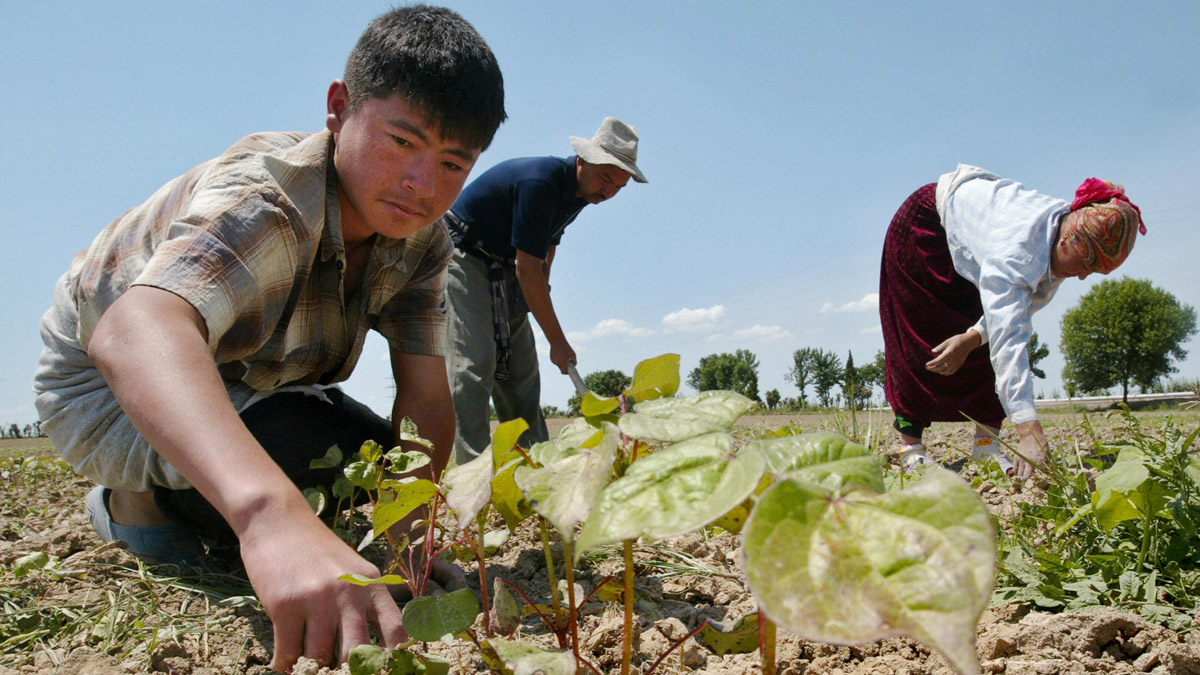Uzbekistan activists beaten and detained
Uzbekistan's human rights crisis continues as campaigners says two more people have been unjustly arrested

A free daily email with the biggest news stories of the day – and the best features from TheWeek.com
You are now subscribed
Your newsletter sign-up was successful
Uzbekistan, a country with a long history of suspected human rights violations, has been in the headlines again this week for all the wrong reasons. With two activists detained and beaten and the government curtailing citizens' freedoms, the international community is beginning to pay closer to attention to the former Soviet state.
What's happening?
According to international rights monitor Human Rights Watch (HRW), two activists have been detained and beaten in the last week. Rights activist Dmitry Tikhonov was seized by Uzbek police after he was caught documenting incidents of forced labour in the country's cotton fields.
The Week
Escape your echo chamber. Get the facts behind the news, plus analysis from multiple perspectives.

Sign up for The Week's Free Newsletters
From our morning news briefing to a weekly Good News Newsletter, get the best of The Week delivered directly to your inbox.
From our morning news briefing to a weekly Good News Newsletter, get the best of The Week delivered directly to your inbox.
Similarly, Elena Urlaeva – another prominent rights activist operating in Uzbekistan – was arrested after documenting people picking cotton.
Why is there so much controversy over cotton?
For Uzbekistan, cotton is a major money-spinner. As one of the country's chief exports, the government regularly uses forced labour to process the annual harvest in September.
Campaigners and charities such as the Cotton Campaign have vocally opposed policies of forced labour during the cotton harvest but with limited success, partly due to the country's limited press freedoms.
A free daily email with the biggest news stories of the day – and the best features from TheWeek.com
The Uzbek government relies on the forced labour of over one million people every year to bring in the country's cotton harvest, campaigners say. Teachers, medical workers, public employees and even children are made to work in the cotton fields.
HRW says that when the country's annual cotton harvest begins each September "the government […] uses coercion, including intimidation and threats of loss of job, social welfare benefits, utilities, expulsion, and even prosecution to force people into the fields."
What is the political situation in Uzbekistan?
Islam Karimov, the current president of Uzbekistan, has held power since 1989. According to the BBC, the political system is highly authoritarian and the use of torture against members of the country's opposition is "systemic".
Reporters Without Borders says that the government regularly punishes journalists for perceived crimes against the state. Foreign media sources have been all but expelled since an uprising in 2005 in Andijan, which resulted in a massacre of several hundred people. More recently the government has used the threat of Islamic extremism to curtail civil liberties.
What does the UN say?
The United Nations has yet to formally comment on the latest developments in the country, but the UN's permanent mission to Uzbekistan has long held human rights reform on its agenda.
-
 How to Get to Heaven from Belfast: a ‘highly entertaining ride’
How to Get to Heaven from Belfast: a ‘highly entertaining ride’The Week Recommends Mystery-comedy from the creator of Derry Girls should be ‘your new binge-watch’
-
 The 8 best TV shows of the 1960s
The 8 best TV shows of the 1960sThe standout shows of this decade take viewers from outer space to the Wild West
-
 Microdramas are booming
Microdramas are boomingUnder the radar Scroll to watch a whole movie
-
 Epstein files topple law CEO, roil UK government
Epstein files topple law CEO, roil UK governmentSpeed Read Peter Mandelson, Britain’s former ambassador to the US, is caught up in the scandal
-
 Iran and US prepare to meet after skirmishes
Iran and US prepare to meet after skirmishesSpeed Read The incident comes amid heightened tensions in the Middle East
-
 Israel retrieves final hostage’s body from Gaza
Israel retrieves final hostage’s body from GazaSpeed Read The 24-year-old police officer was killed during the initial Hamas attack
-
 China’s Xi targets top general in growing purge
China’s Xi targets top general in growing purgeSpeed Read Zhang Youxia is being investigated over ‘grave violations’ of the law
-
 Panama and Canada are negotiating over a crucial copper mine
Panama and Canada are negotiating over a crucial copper mineIn the Spotlight Panama is set to make a final decision on the mine this summer
-
 Why Greenland’s natural resources are nearly impossible to mine
Why Greenland’s natural resources are nearly impossible to mineThe Explainer The country’s natural landscape makes the task extremely difficult
-
 Iran cuts internet as protests escalate
Iran cuts internet as protests escalateSpeed Reada Government buildings across the country have been set on fire
-
 US nabs ‘shadow’ tanker claimed by Russia
US nabs ‘shadow’ tanker claimed by RussiaSpeed Read The ship was one of two vessels seized by the US military